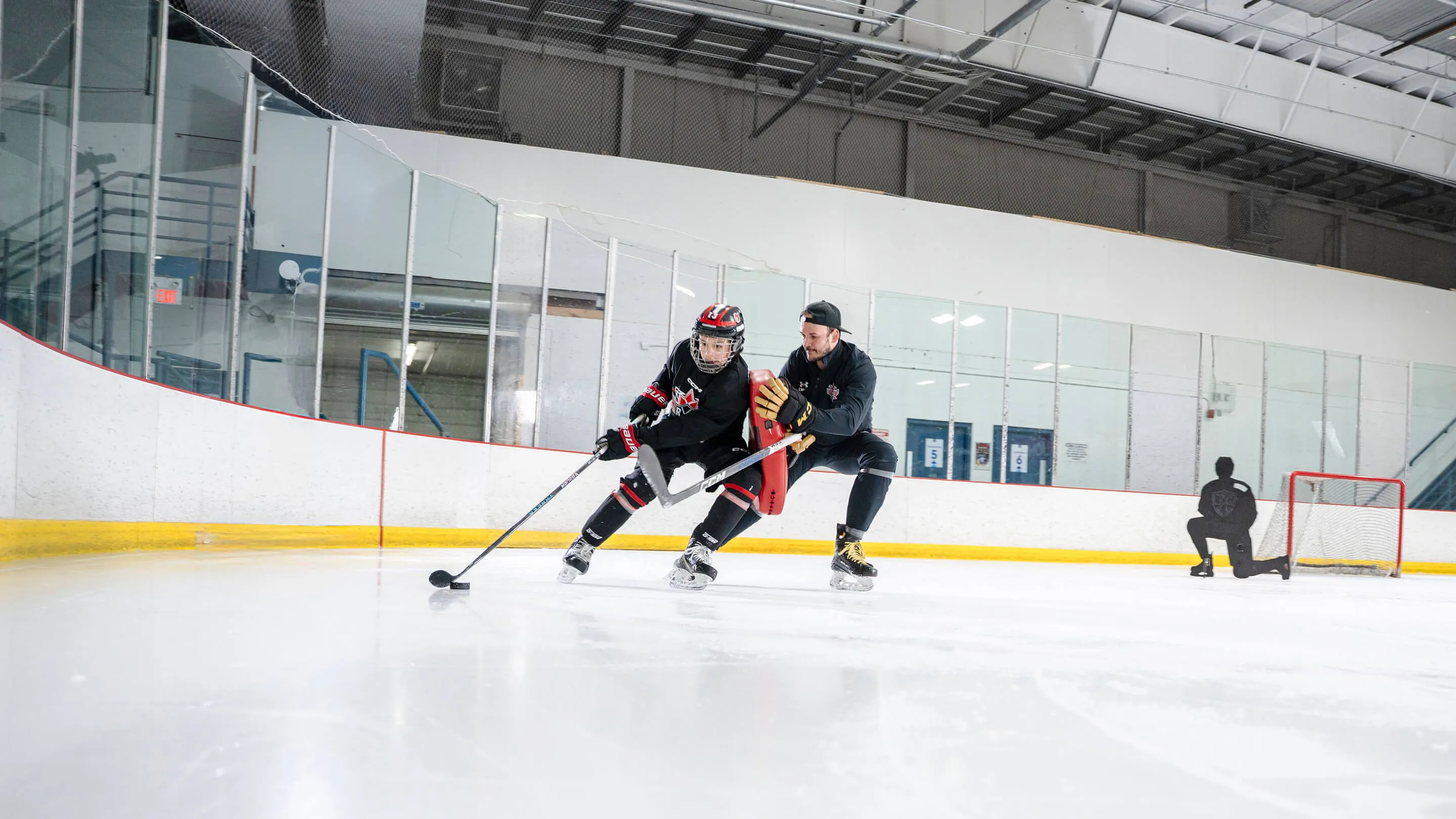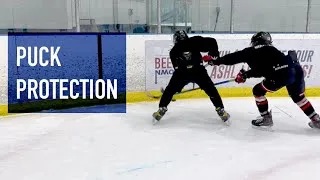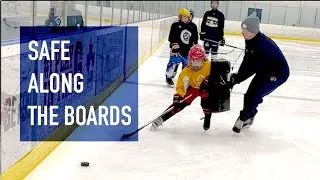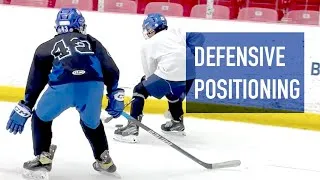Contact Confidence & Battles Camp 2026
Get Prepared For Tougher Competition

About Contact Confidence Camp
The Hockey Battles and Contact Confidence Camp is an intensive training program designed to enhance younger players’ ability to win more battles, develop their hockey IQ, contact confidence and help to prevent injures in the sport of hockey. The camp provides a structured and progressive approach to teach players the fundamentals of positioning, angling, proper stick check body contact and decision making under pressure while prioritizing safety and proper technique.
June 30 – July 5, 2025 | August 11 – 15
Canlan York
About the Camp
Improve Hockey IQ. Decision-making Under Pressure.
Battles in Phase II of the camp provide players with valuable experiences that improve their hockey IQ. By replicating game-like scenarios, players develop the ability to make quick, informed decisions, anticipate plays, and effectively execute strategies.
These skills translate to improved decision-making on the ice, enhancing their overall performance and contribution to the game.
Prevent Injures
The camp program teaches young players to control their bodies and be aware of their surroundings during contact situations. This helps them understanding how to position their body in contact situations to protect themselves and minimize the risk of injury
With improved body awareness, players can also better anticipate and respond to physical challenges on the ice.

Camp Structure & Progression
Transfer Improved Mechanics To The Game
Our two-step teaching method at RHA is designed to help players learn bodychecking skills in a safe and effective way. We use a progressive approach through our camp program to help players understand and execute a range of checking and puck protection skills for different game situations. We carefully build each skill piece by piece, so players are fully prepared to use them in all three zones of the game.
Step I: Gain confidence
The two-step model for teaching and practicing checking techniques involves first practicing skills and mechanics on pads and obstacles. Coaches can control the level of pressure and intensity at this stage, allowing players to gain confidence in a safe and efficient manner.

Step II: Apply skills in battles.
The next step is to apply the skills you’ve learned in game situations against an opponent, with the goal of either regaining control of the puck or creating scoring opportunities. This will require you to use individual tactics and make decisions based on your opponent’s play. You’ll need to use defensive techniques such as proper angling and positioning, as well as offensive techniques like protecting the puck and positioning yourself for a good scoring opportunity.

Objective of the camp
Become a more valuable player
Players will lear how to enhancing both the defensive and offensive sides of the game by using body contact. Here’s how body contact contributes to the effectiveness of players in both aspects:
Offensive Side

Protecting th Puck:
Body contact enables offensive players to shield the puck from defenders and maintain possession. By using their body to shield the puck, offensive players can fend off defenders, maintain control, and make plays in the offensive zone.

Establishing Physical Presence:
Body contact from offensive players can establish a physical presence in the offensive zone, creating chaos for defenders and increasing scoring opportunities. By engaging in body contact, offensive players can disrupt defensive strategies, create screens in front of the net, and create scoring chances for themselves and their teammates.

Board Battles:
Body contact is often crucial in winning battles along the boards, as it allows offensive players to gain possession, maintain control, and extend offensive zone time. By using their body effectively in board battles, offensive players can create opportunities for sustained offensive pressure and generate scoring opportunities.

Creating Space:
Body contact allows offensive players to create space for themselves and their teammates. By delivering a well-timed body check, offensive players can separate themselves from defenders, opening up passing and shooting lanes, and creating opportunities for scoring chances.
Defence. Focus on maintaining puck control under pressure and using body effectively for defense and puck retrieval.
Offensive Side

Defensive Positioning:
Engaging in body contact helps defenders maintain proper positioning and establish physical dominance over opponents. This allows defenders to create body-on-body contact, box out opponents, and prevent them from gaining advantageous positions in scoring areas.

Puck Separation:
A legal body contact can help defenders regain possession of the puck by effectively separating opponents from it. This is achieved through well-executed body contact which allows defenders to jostle opponents, force turnovers, or take the puck away, resulting in a defensive advantage for their team.
Battles and Contact Confidence Camp Info
Details
- June 30–July 5th (July 1st – day off)
- August 11-15th
Duration: 5 days, 2 hr/daily on ice training ( 10 hours total )
Location: Canlan York
Cost: $750
Small Groups
Number of players: 7 players per instructor in the group
Level: AAA/AA only
Drop-Ins
Drop-in Option – Available 1 week before the camp.
Click Registration to choose your dates. If a day shows a waiting list status, you can register for the waiting list at no charge. We will do our best to adjust mini-groups to open up a spot for specific age/level players or accommodate replacements if openings become available.
Cost: $165 ( 2hr )*Note: Processing fees may apply depending on the payment method.